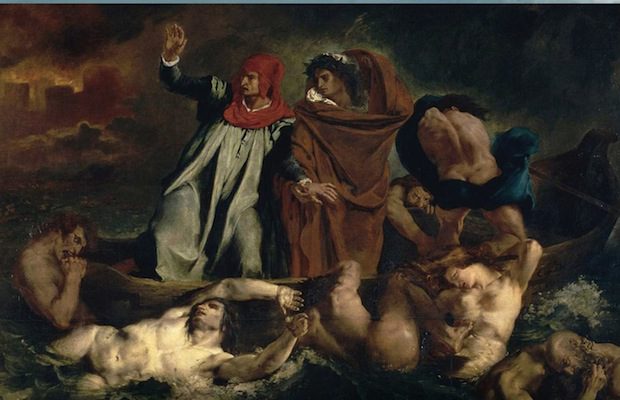Reading Dante on Holy Week

From an essay of mine in National Review Online today:
In the graveyard, I saw two men arguing. One of them, a proud older man, stood inside a flaming open tomb, trying with his authoritative manner to put the younger man in his place. His opponent could have walked on, but he stood there arguing pointlessly about their families and the place they came from. I couldn’t take my eyes off those two. The older man was dead, but didn’t seem to know it. The younger man was alive, but seemed to have forgotten it.
Suddenly it struck me: I am observing this scene from Dante’s Inferno, the book I’m holding in my hands, but in truth, I am watching my father and myself.
More:
The Commedia is an icon, a window into spiritual reality and a doorway through which lies new life. Yes, it is a Great Book, an artistic pinnacle of Western civilization — and that monumental status is what intimidates people like me from ever picking it up. That’s a shame. The Commedia has to be the most practical Great Book ever written. Dante the poet wrote a letter to a friend in which he said he created the Commedia to help his readers understand why they suffer, and how they can be released from that suffering, because he too had been on that trail of tears, which God turned into a road that bound him for glory.
Dante’s method works, and it works because his extraordinary poem, seven centuries old, is not really the pilgrimage of an exiled Tuscan through the afterlife, but a journey for every reader into his or her own heart — as it is, and as it can be through the astounding grace of God.
And if you like what you read, please considering pre-ordering my book about same, How Dante Can Save Your Life.
Subscribe for as little as $5/mo to start commenting on Rod’s blog.